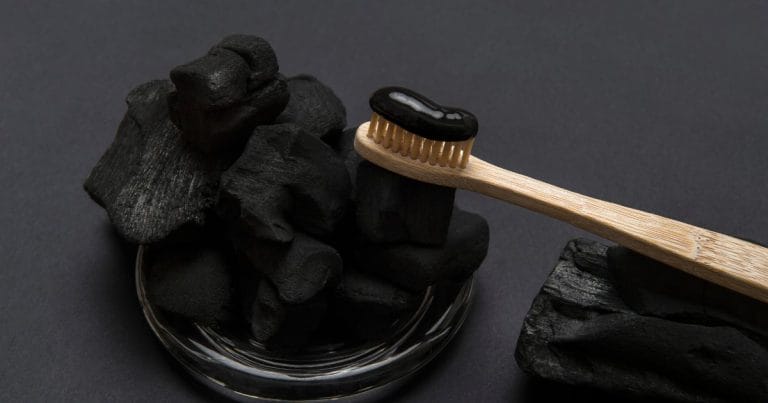Charcoal toothpaste has been all the rage, making waves in the oral care industry with its promises of whiter, brighter smiles. Propelled by aesthetic appeal and persuasive marketing, this pitch-black substance has taken social media by storm and found its place on store shelves worldwide. Yet, beneath the allure and widespread fascination, one crucial question lingers – is charcoal toothpaste really as effective and safe as it’s made out to be?
Understanding Charcoal Toothpastes
The crux of this trend, charcoal toothpaste is a unique product incorporating activated charcoal. This particular form of carbon has been treated to enhance its absorbency, and this property underpins the supposed benefits of charcoal toothpaste. The notion that charcoal can latch onto and extract surface stains more effectively than traditional toothpaste has intrigued many.
However, this focus on stain removal marks a distinct departure from conventional toothpaste formulations. The standard approach involves using fluoride to combat tooth decay, but charcoal toothpaste often eschews this in favor of leveraging the supposed benefits of charcoal. It’s a compelling shift, but it’s essential to investigate the science and safety behind it before embracing the trend wholeheartedly.
Claims surrounding charcoal toothpaste extend beyond mere teeth whitening. Manufacturers and proponents argue that the product can detoxify your mouth, freshen your breath, and even help prevent cavities. Yet, it’s essential to separate facts from misconceptions. Not all dark-colored toothpaste contain charcoal; some merely use coloring for aesthetic appeal. Moreover, while the porous nature of charcoal is celebrated, it doesn’t distinguish between beneficial and harmful substances, which might lead to unintended consequences.
Evaluating the Effectiveness of Charcoal Toothpastes
When it comes to effectiveness, anecdotal testimonials offer a mixed bag. Some users swear by the whitening effects of charcoal toothpaste, attributing their brighter smiles to the product’s abrasive properties. However, while individual success stories can be compelling, they don’t constitute rigorous scientific evidence. That’s where the need for empirical research comes into play.
A thorough review in the Journal of the American Dental Association underscores the current predicament. It concluded that there needs to be more clinical and laboratory data to substantiate the safety and efficacy claims of charcoal and charcoal-based dentifrices. Despite the high-profile status of charcoal toothpaste, the scientific jury is still out. Until more definitive research emerges, caution may be warranted.
Balancing the potential benefits against the limitations is a tricky task. The potential for stain removal might be appealing for some, but the inconsistent and sometimes conflicting research findings make it difficult to endorse charcoal toothpaste wholeheartedly. Until more rigorous studies are conducted, the effectiveness of charcoal toothpaste remains a question marked by significant uncertainty.
Safety Concerns and Risks Associated with Charcoal Toothpaste
On the safety front, the abrasive nature of charcoal toothpaste raises important concerns. The same abrasive properties that might remove stains effectively can also potentially wear down tooth enamel, the protective outer layer of your teeth. Over time, worn-down enamel can increase tooth sensitivity and a higher risk of decay.
Beyond the immediate implications, there are also potential long-term risks. Consistent use of charcoal toothpaste could contribute to progressive enamel erosion, leading to heightened tooth sensitivity. Additionally, since many charcoal toothpaste lack fluoride – an essential component for preventing tooth decay – users could inadvertently increase their risk for cavities.
Given these considerations, it’s clear that the safety profile of charcoal toothpaste is a complex issue. As much as we might be intrigued by the possibility of an innovative approach to oral care, it’s also crucial to acknowledge and understand the potential downsides. Ultimately, our health decisions should be guided by a comprehensive understanding of the benefits, risks, and available evidence.
Approaches for Achieving Oral Health Goals
Although the allure of charcoal toothpaste is undeniable, it’s far from the only pathway to a brighter, whiter smile. Various effective and safe teeth-whitening products are available, many of which have been tested and approved by reputable dental associations. Additionally, traditional oral care routines can offer a solid foundation for maintaining oral health and aesthetics.
Consistency in oral hygiene can be a significant factor in achieving and maintaining a bright smile. Regular brushing with fluoride toothpaste, flossing, and mouthwash can help prevent plaque build-up and promote oral health. Additionally, a balanced diet low in sugars can contribute significantly to oral health, reducing the risk of cavities and gum disease.
Beyond home care, professional dental cleanings and treatments offer another pathway toward oral health goals. Dentists possess the expertise and tools to deliver effective and safe results, often more so than at-home treatments. Regular dental check-ups also provide an invaluable opportunity to detect potential oral health issues early, allowing for prompt treatment and prevention.
Expert Opinions and Recommendations
While the opinions of dental professionals on the use of charcoal toothpaste are diverse, there is an overarching note of caution. The absence of charcoal toothpaste in the approved list of certain dental associations reflects a need for more comprehensive research to validate the safety and effectiveness of these products.
This cautionary stance of professional organizations serves as an important reminder for individuals considering using charcoal toothpaste. Their guidance underscores that more evidence is needed before such products can be recommended without reservation.
Personalized advice from a dental professional should be a key component in decisions regarding oral care. Dentists and dental hygienists can provide expert advice tailored to individual needs and concerns. They are familiar with the latest research and can guide patients toward products and practices that support optimal oral health.
Making an Informed Decision
Ultimately, the choice to use charcoal toothpaste hinges on a careful assessment of its pros and cons. While there may be some potential benefits, such as improved stain removal, these must be weighed against the potential risks, such as enamel erosion and lack of fluoride. An informed decision will consider these factors in the context of personal oral health goals and needs.
Considering individual needs and goals is paramount in making decisions regarding oral care. It’s important to remember that what works for one person may not necessarily be the best choice for another. Seeking professional guidance and prioritizing evidence-based practices can help ensure that decisions promote overall oral health.
The hype around charcoal toothpaste highlights a broader trend toward novel and sometimes unconventional approaches to oral health. As we continue exploring and understanding these products, staying informed and prioritizing our well-being is crucial. Whether or not charcoal toothpaste has a place in your oral care routine, one thing is certain – your oral health deserves the best care possible.
In conclusion, while charcoal toothpaste has generated considerable interest and curiosity, it’s essential to prioritize our oral health above all. Despite the intrigue around its teeth-whitening potential, mixed evidence, and potential risks should be considered seriously. Regular dental hygiene practices, balanced diets, and routine dental check-ups are vital to maintaining oral health. Given the uncertainties around charcoal toothpaste, it might be worth discussing this with your dental professional before changing your oral care routine. Regardless of the toothpaste you use, always remember that your radiant smile and oral health are worth the best care you can provide. So, take the reins of your oral health today, consult with your dentist, and ensure that every decision you make is informed and in your best interest.



